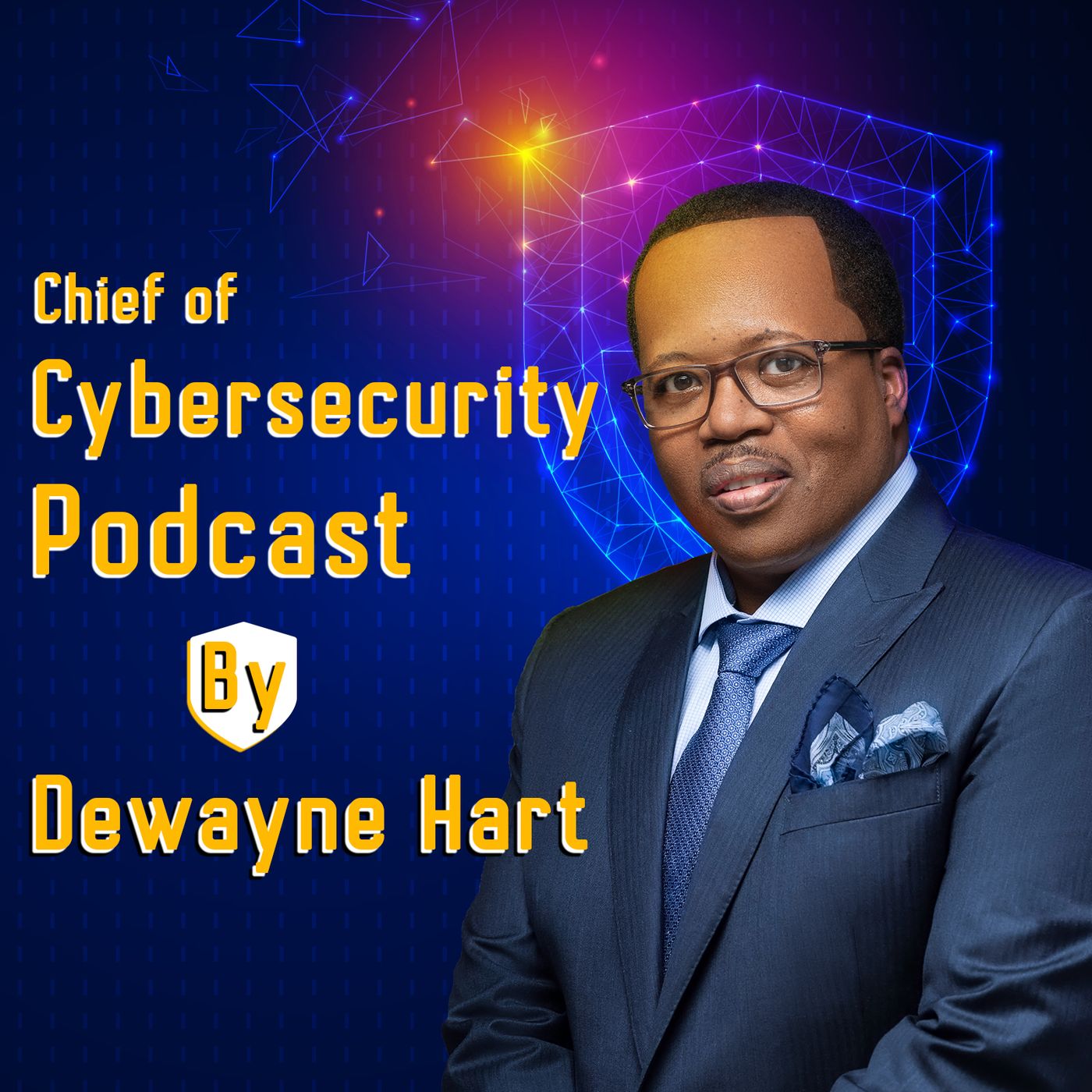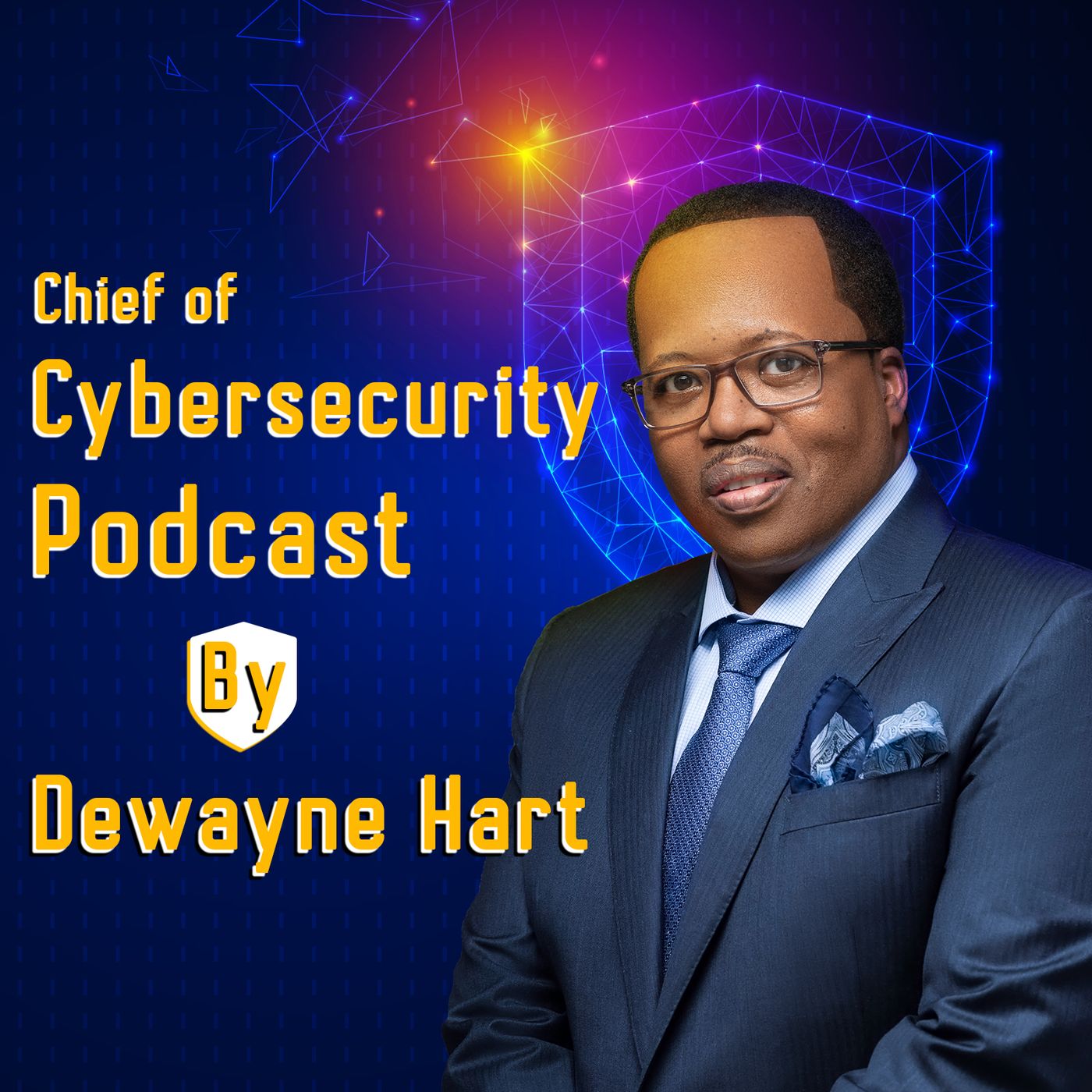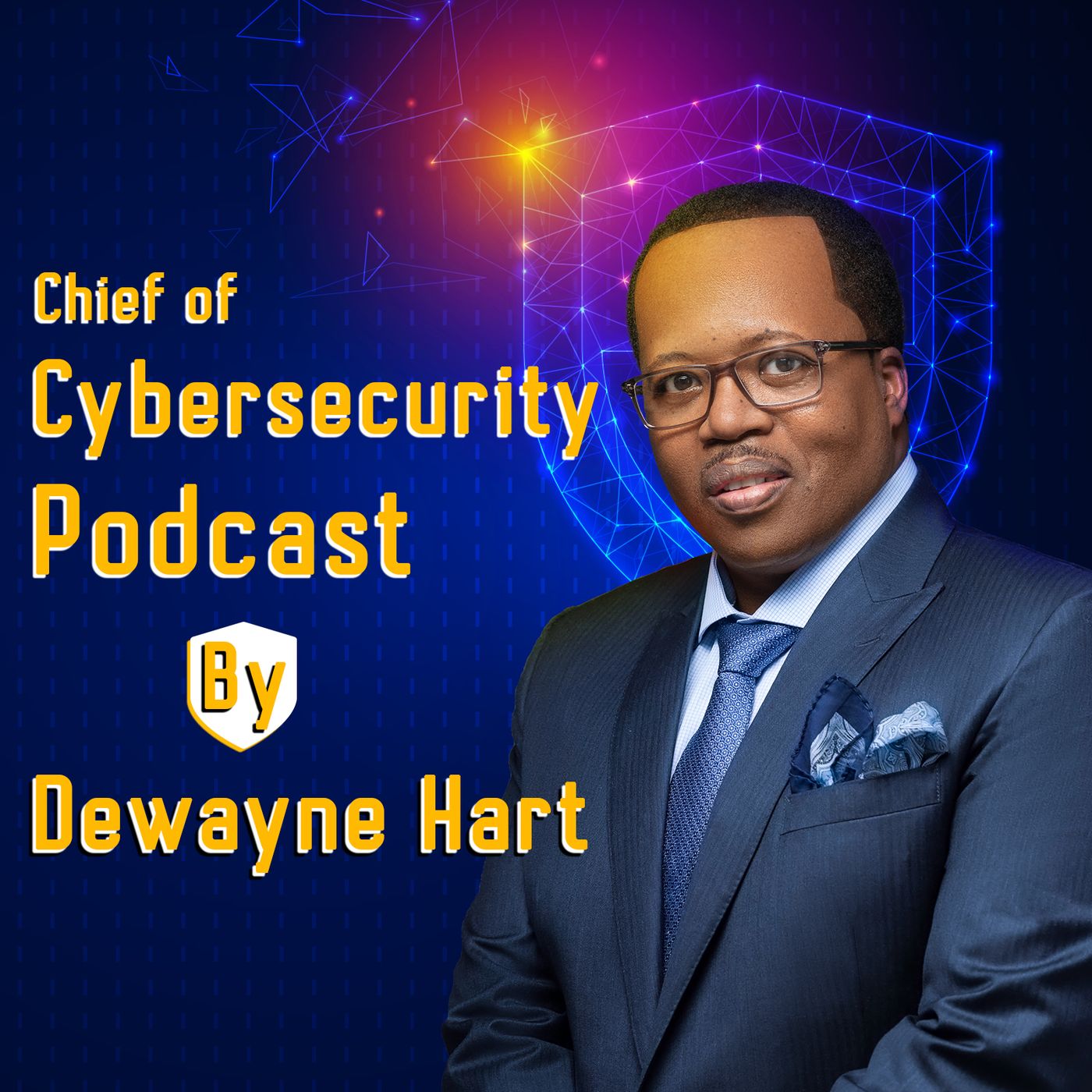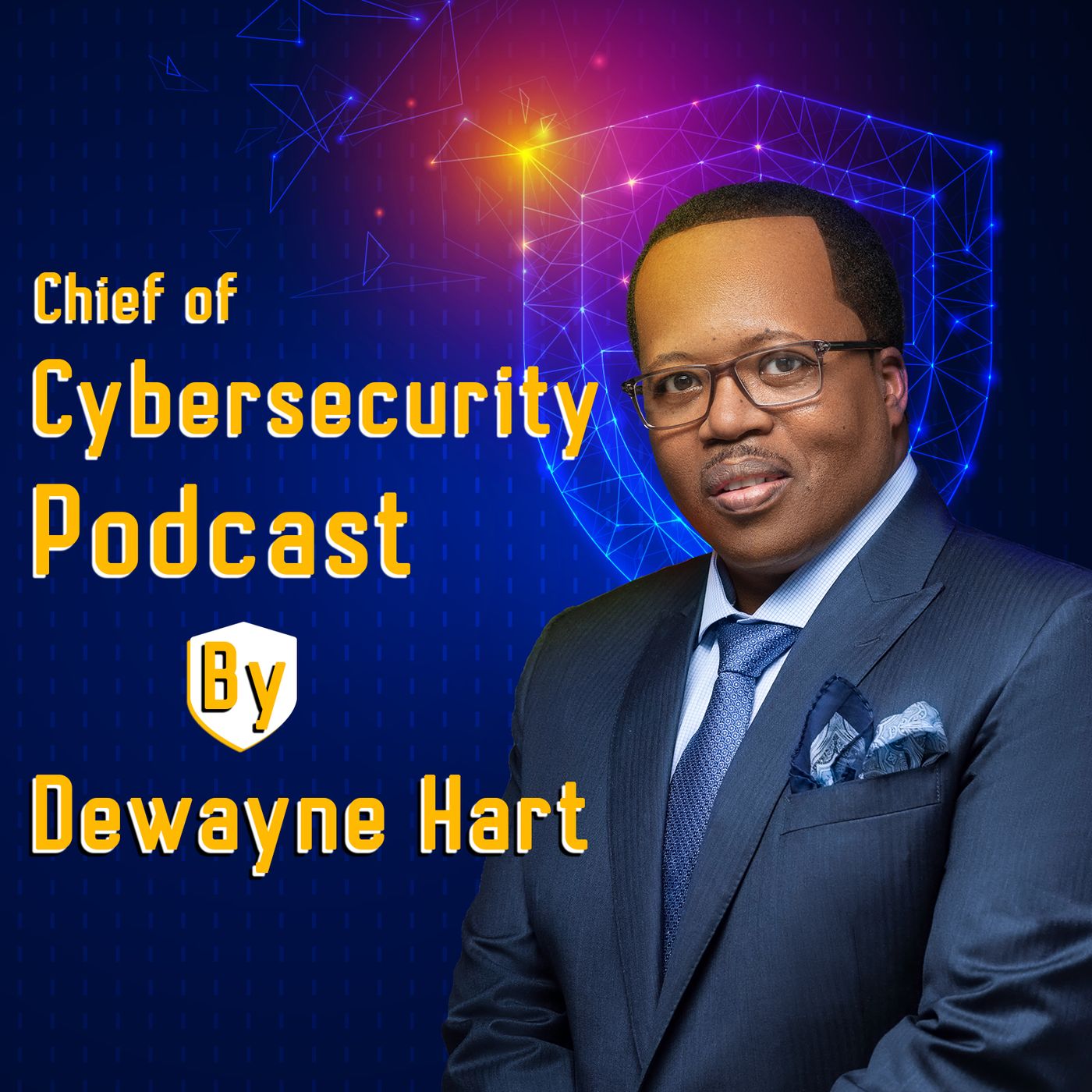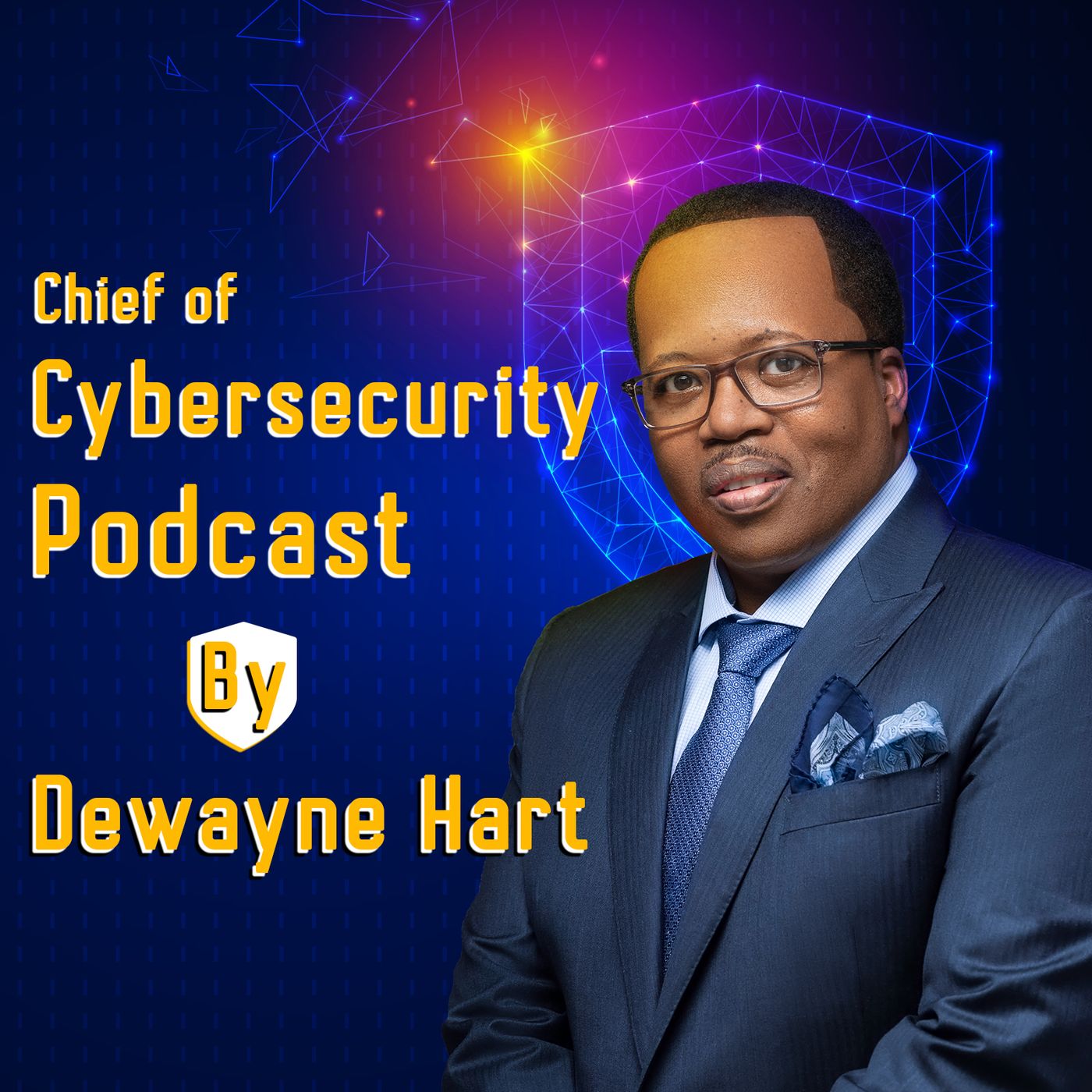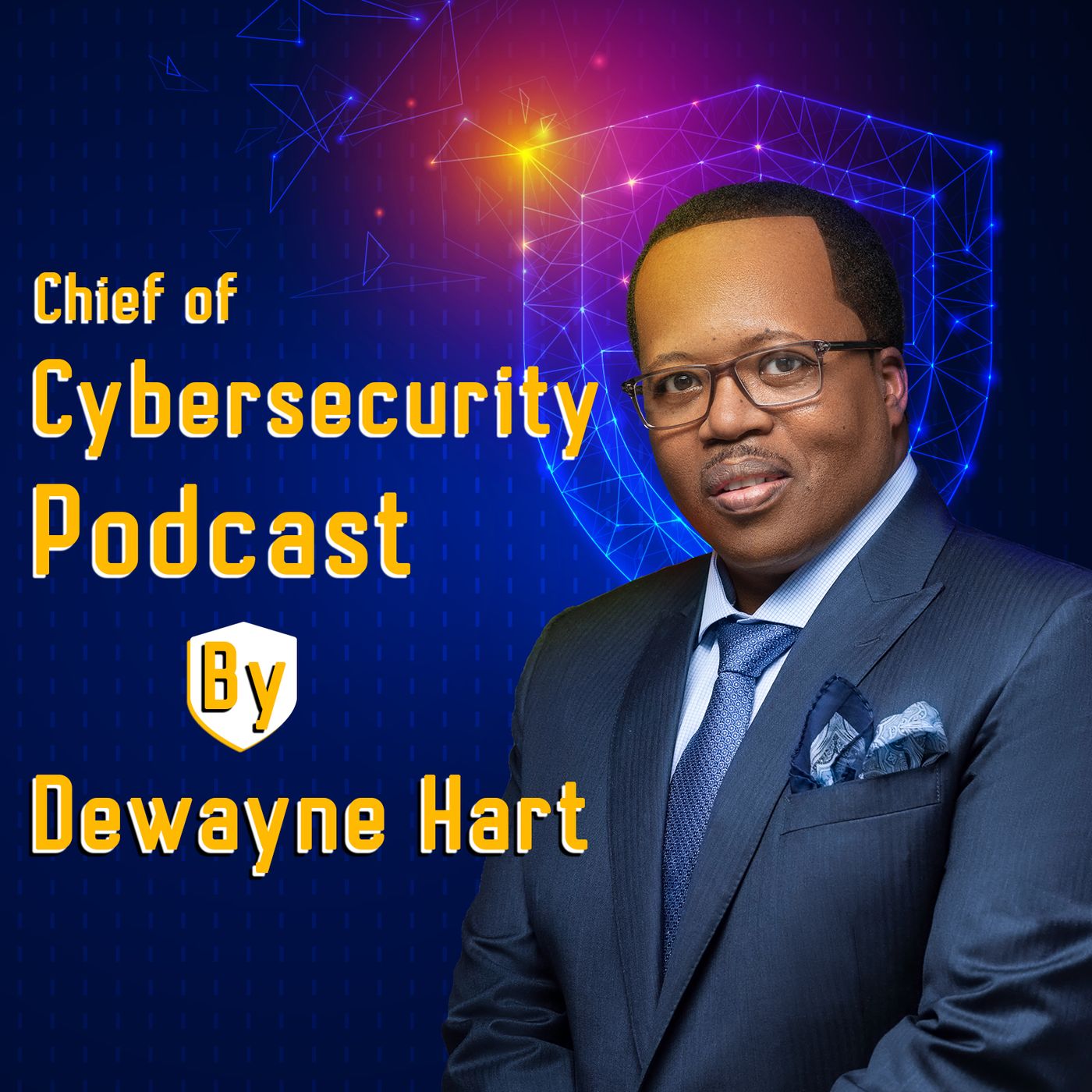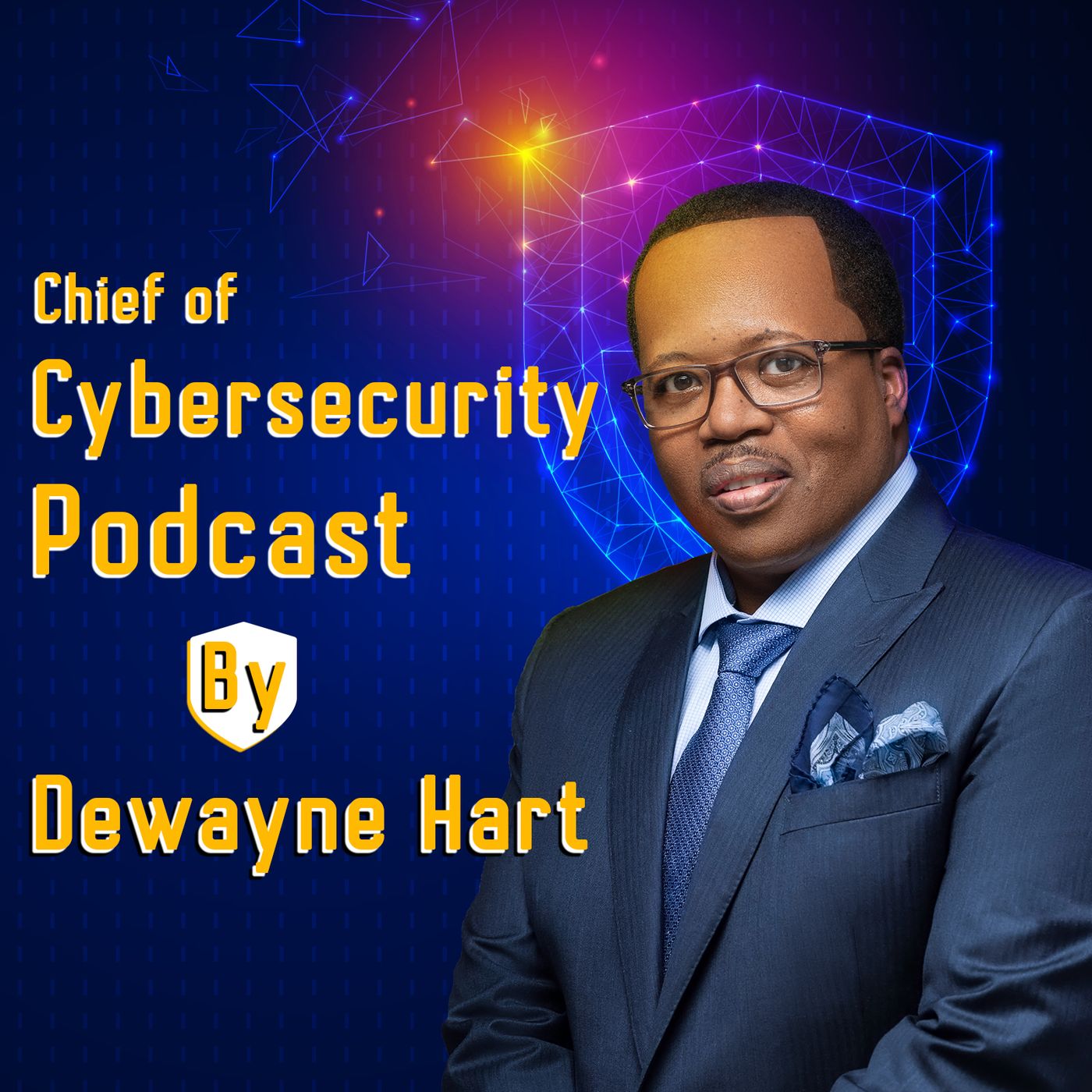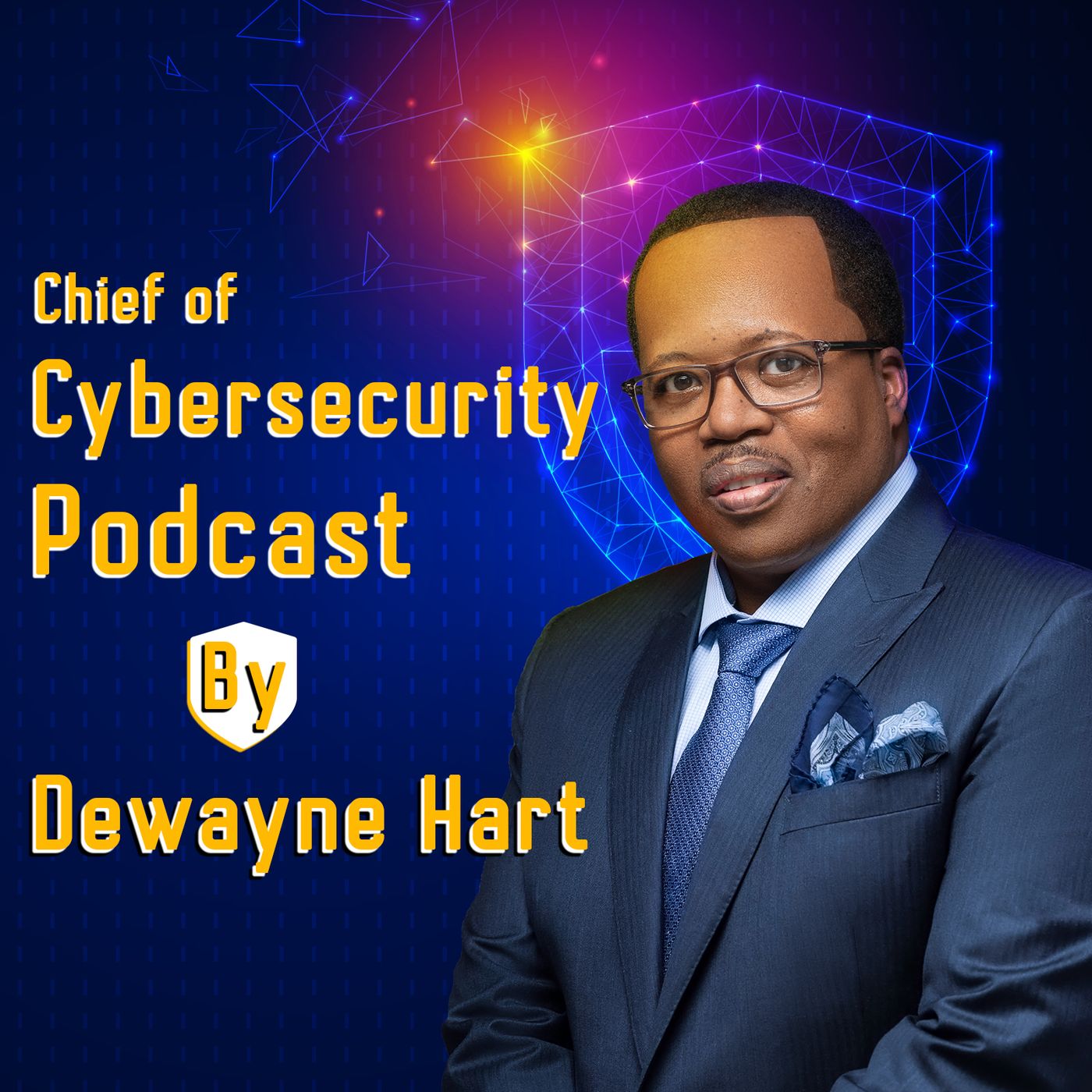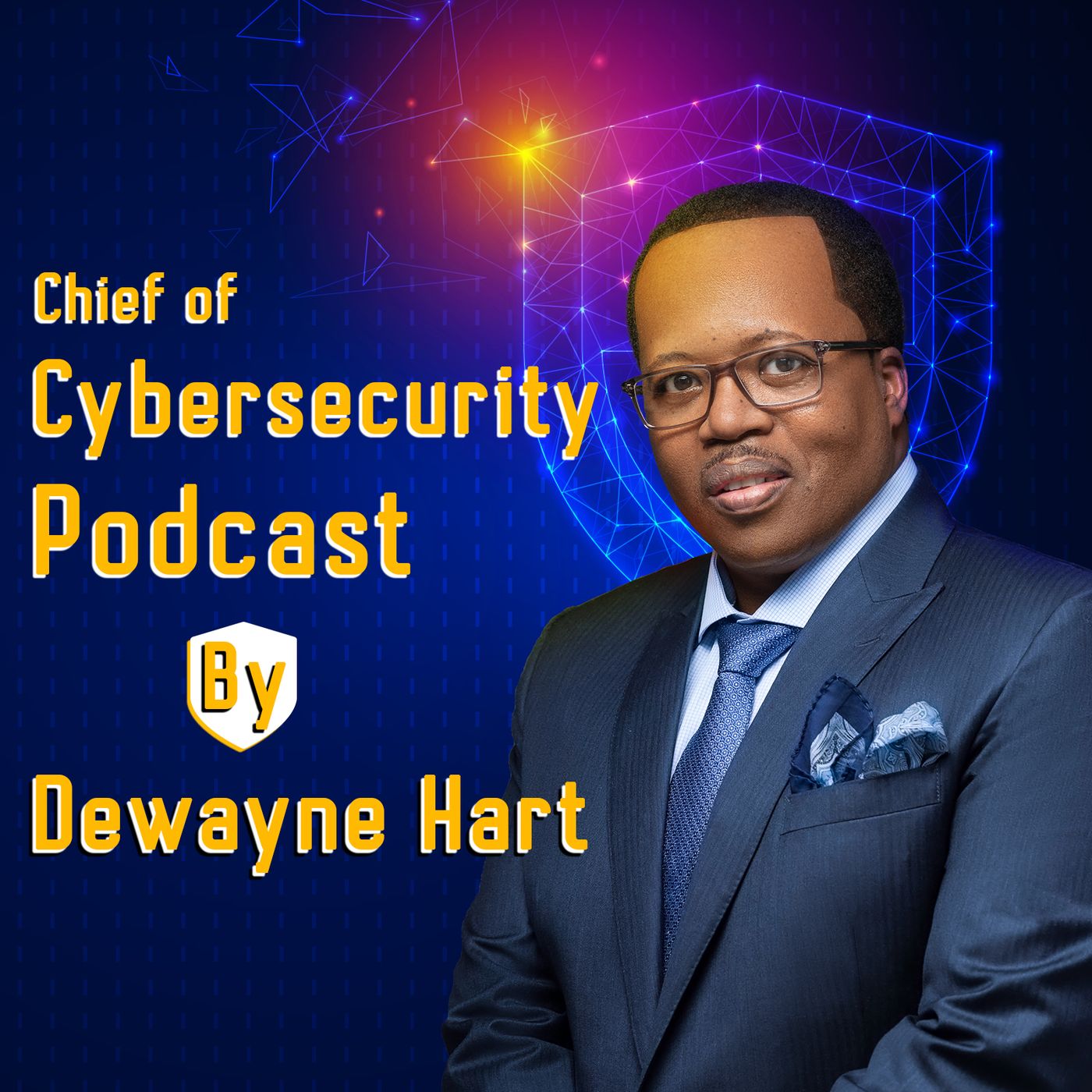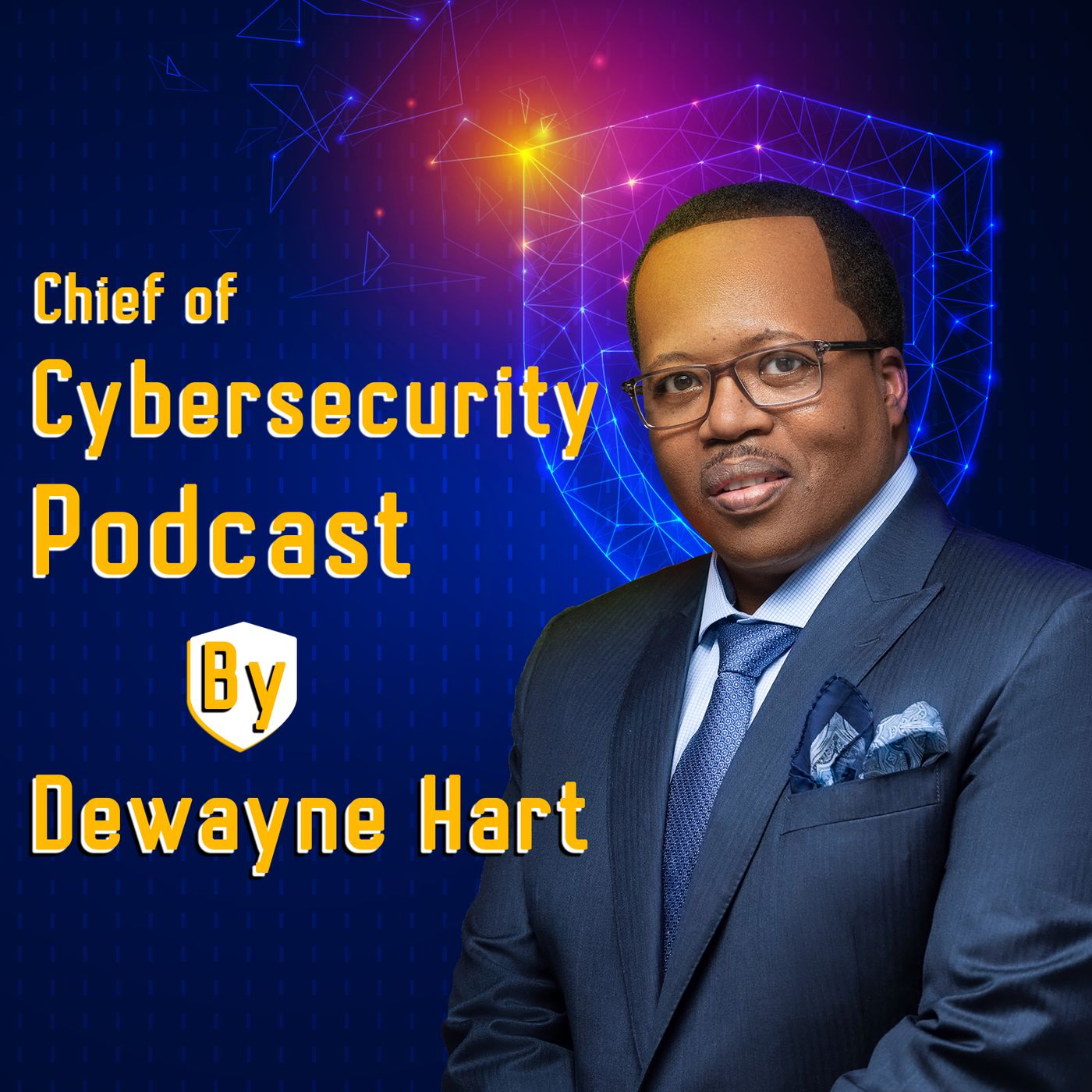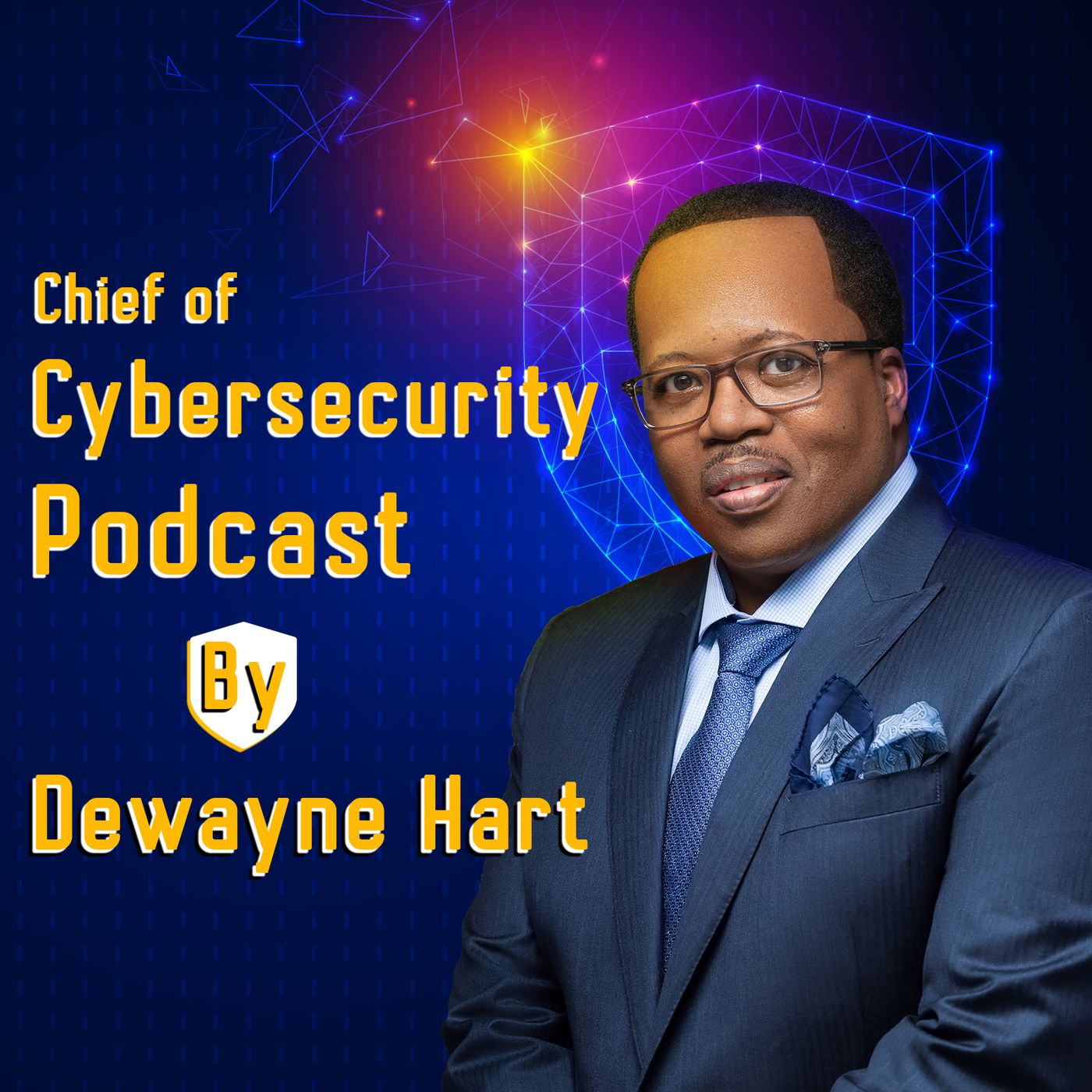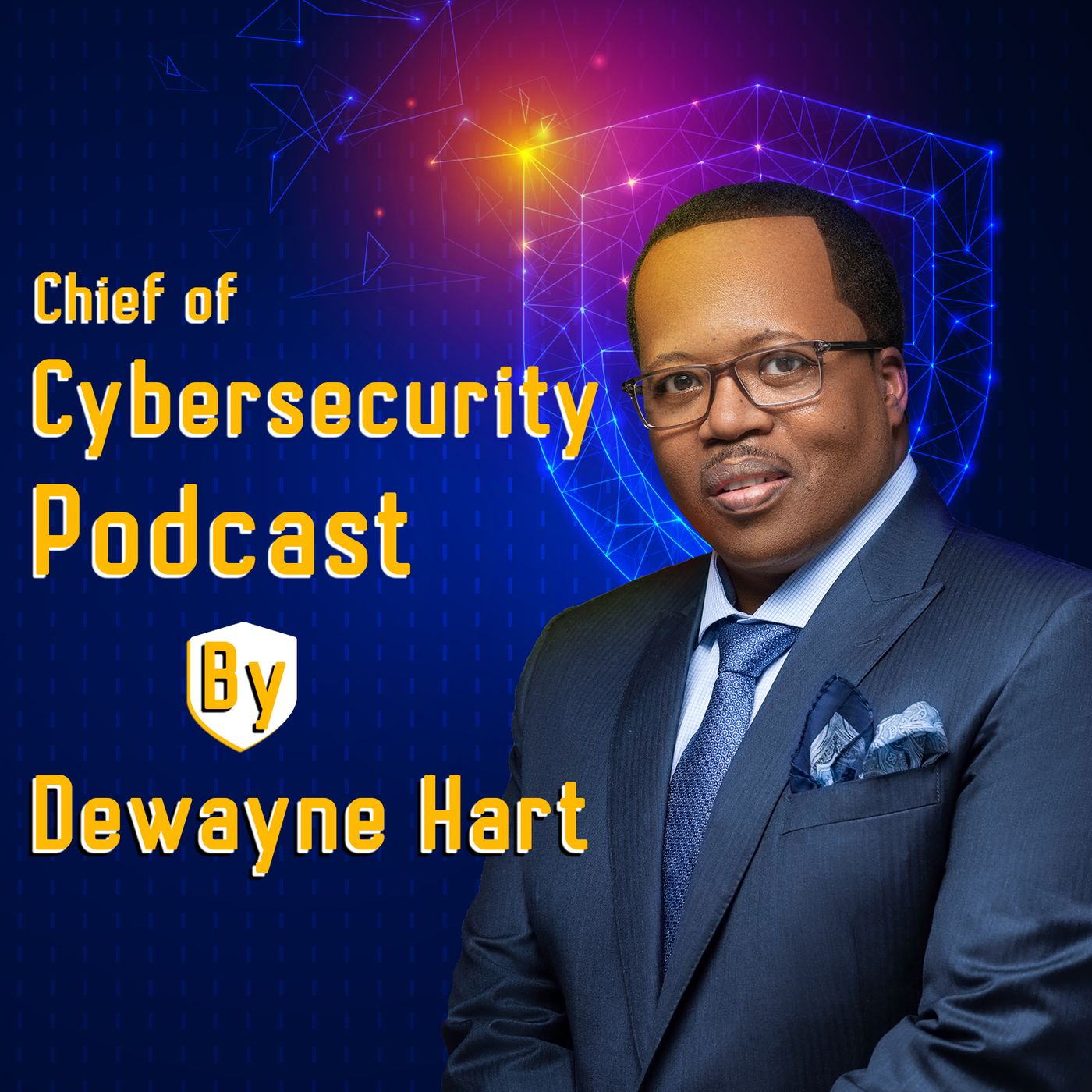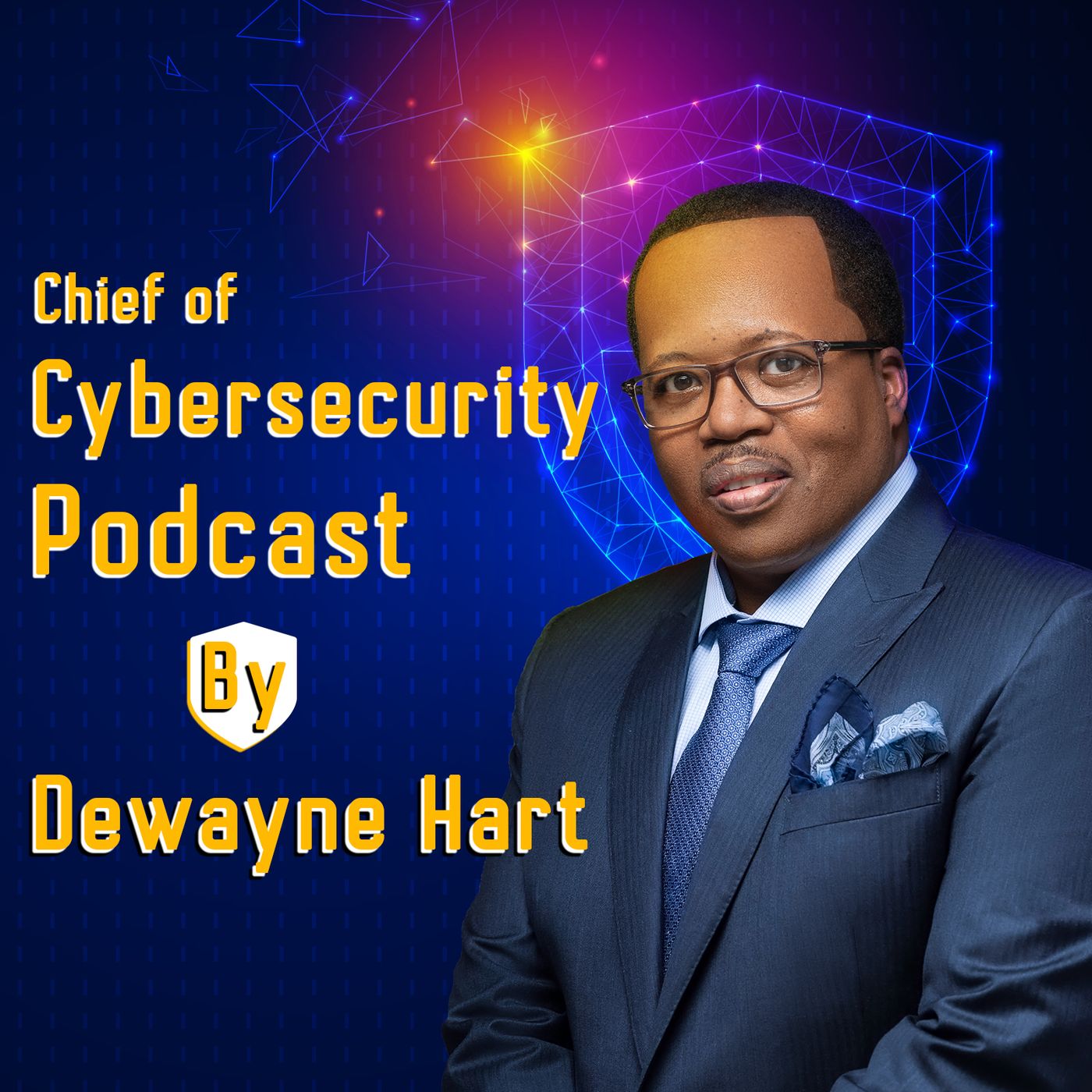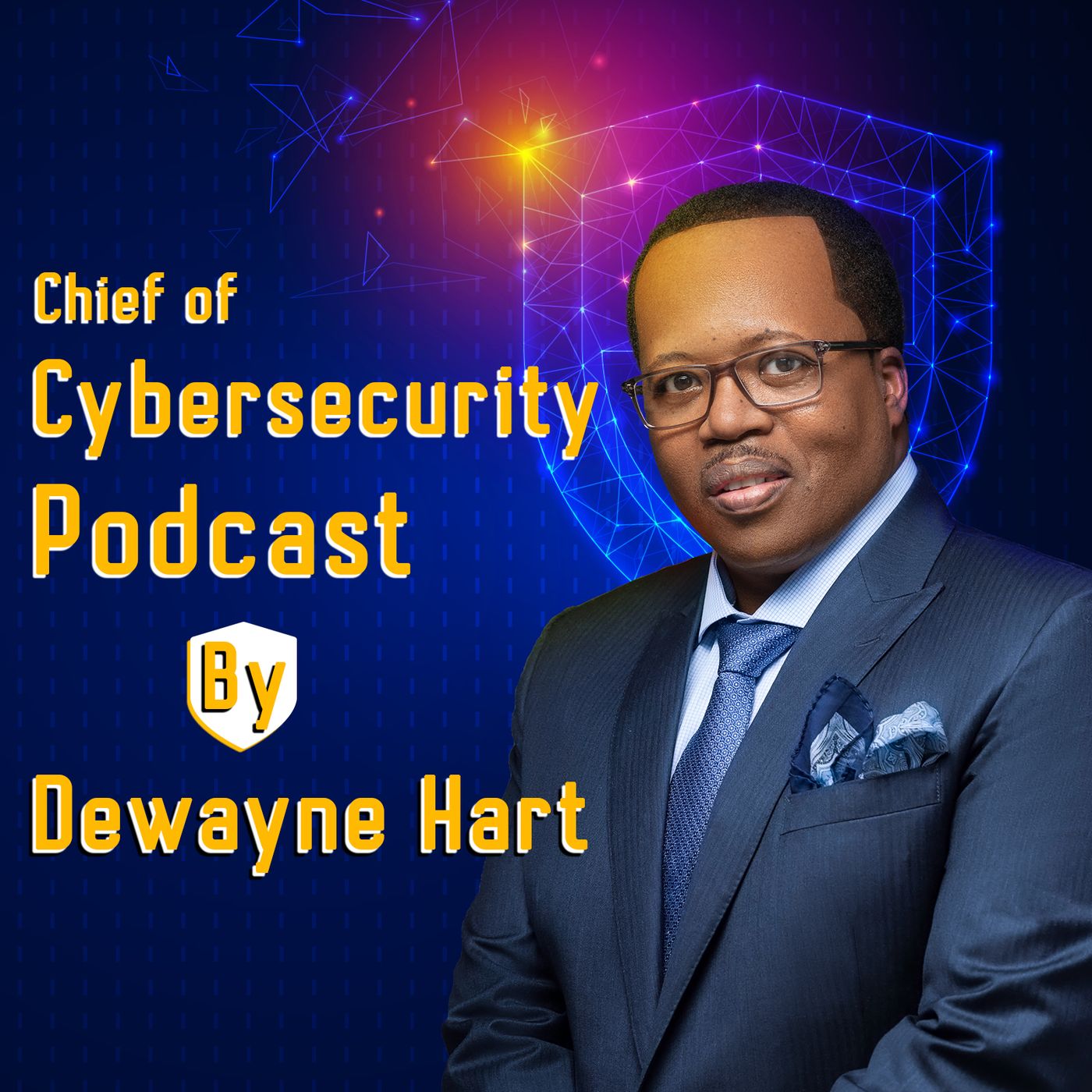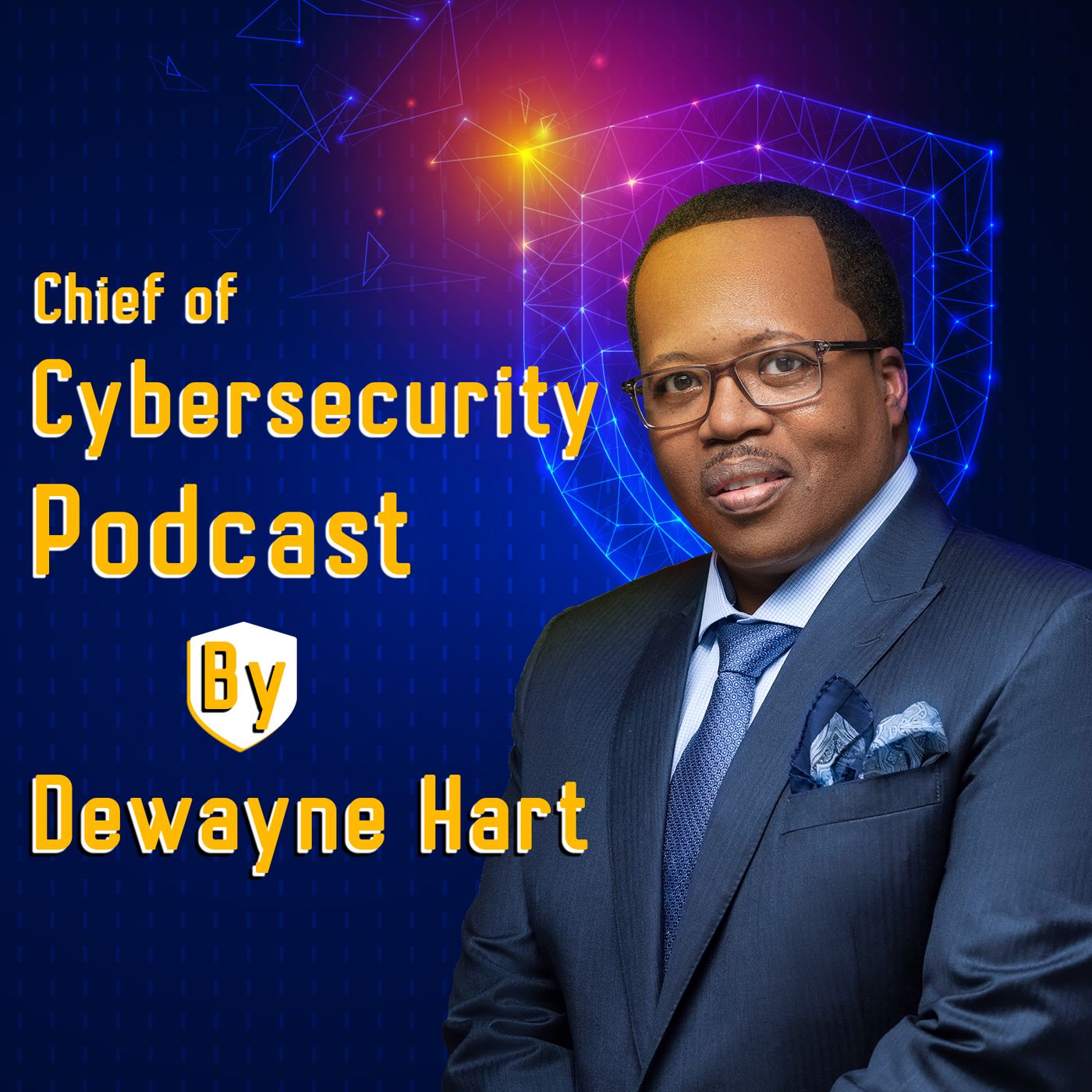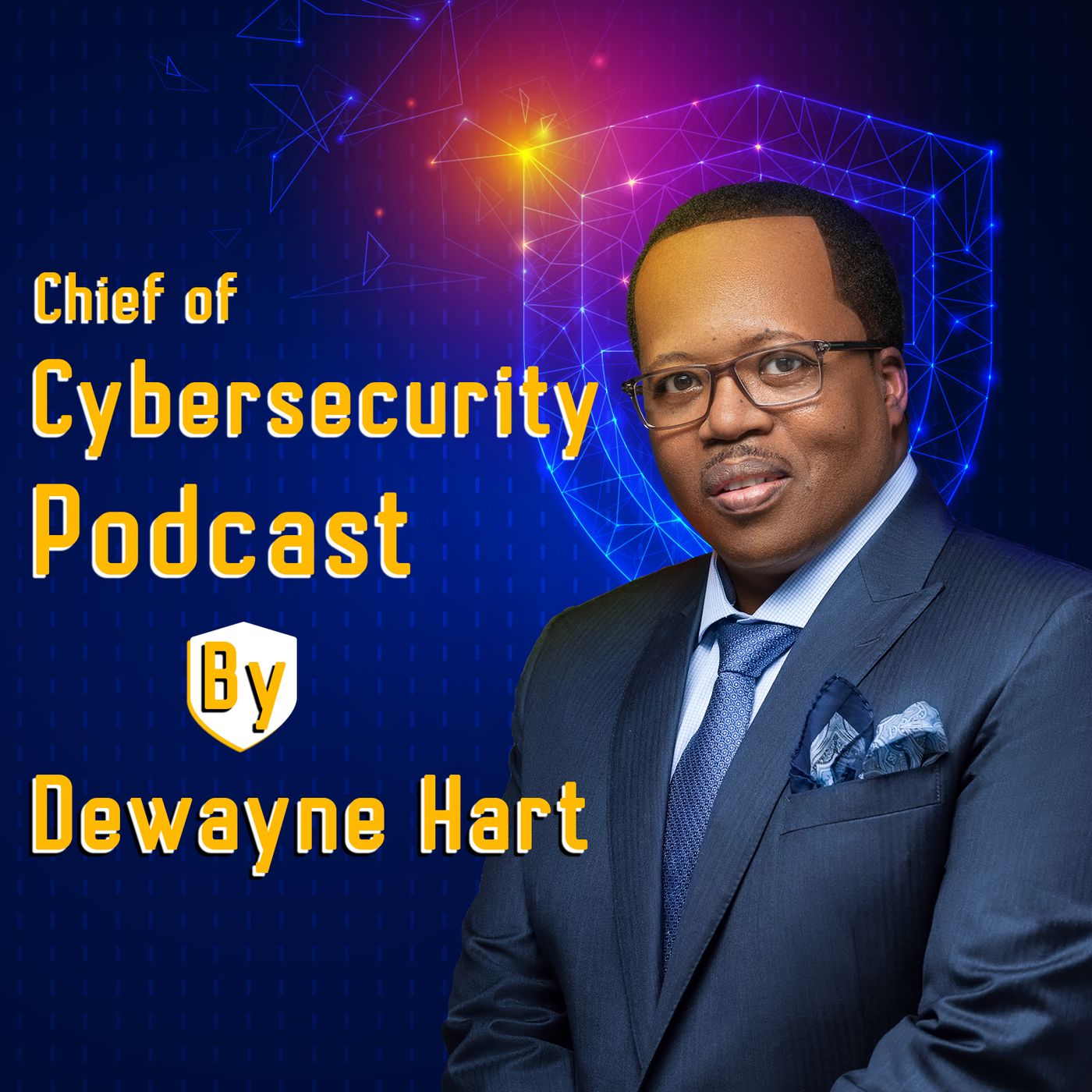Discover Chief of Cybersecurity
Chief of Cybersecurity

Chief of Cybersecurity
Author: Dewayne Hart
Subscribed: 6Played: 8Subscribe
Share
© Copyright 2024 Dewayne Hart
Description
Welcome to the Chief of Cybersecurity Podcast hosted by Dewayne Hart where we provide learning and discuss relevant information concerning the cybersecurity workforce, business development, and best practices. You can find more information about SEMAIS at www.semais.net and a list of authored publications at www.DewayneHart.com
64 Episodes
Reverse
In today’s digital landscape, every business is a target. Cyber threats are evolving, and businesses need champions. Are you ready to step up and become the Cybersecurity Business Champion?Imagine leading your organization with confidence, knowing you have the strategies and tools to combat cyber threats. As a champion, one will not only protect the business but also drive innovation and growth, and play a pivotal role in steering an organization’s cybersecurity strategy. They are responsible for advocating the importance of cybersecurity at all levels of the organization, from the boardroom to the front lines. By bridging the gap between technical cybersecurity measures and business strategy, they ensure that security considerations are integrated seamlessly into every facet of the business. Their expertise and leadership are instrumental in developing resilient cybersecurity frameworks that not only protect against current threats but also anticipate and prepare for future challenges. Join this podcast to learn effective strategies to navigate cybersecurity in a business while securing your enterprise.In this podcast , we'll reveal the secrets to staying ahead of the competition and establishing yourself as a thought leader in the cybersecurity space. From understanding the latest threats and trends to developing a winning business strategy, we'll cover it all. Get ready to elevate your cybersecurity business and take the crown!
Security capabilities are the backbone of any effective defense system. They encompass a range of tools and practices designed to protect assets, information, and people from threats. At their core, security capabilities help organizations identify vulnerabilities and mitigate risks. This proactive approach is essential in today’s fast-evolving threat landscape, where cyber-attacks and physical breaches are increasingly sophisticated.One powerful aspect of security capabilities is their ability to integrate various technologies. From firewalls and intrusion detection systems to biometric authentication, these tools work together to create a robust defense. Additionally, security capabilities empower teams through data analysis and threat intelligence. By monitoring activities in real-time, organizations can respond swiftly to potential incidents, minimizing damage and ensuring continuity. Training and awareness are also vital. Security capabilities focus on educating employees about potential risks and best practices, transforming them into the first line of defense against threats.This podcast explores what makes security capabilities so powerful. Get ready to unlock the full potential of security capabilities and take your organization's security to the next level. Whether you're a security professional, IT manager, or business leader, this podcast is a must-watch for anyone looking to stay ahead of the threats and protect their organization's assets.
In today's digital landscape, it is crucial to develop a strong cybersecurity culture within your organization to protect sensitive data and fend off hackers. This podcast explores essential strategies for cybersecurity leadership that will empower your team and create a culture of security awareness. Discover how to foster collaboration, promote best practices, and instill a proactive mindset among your employees.We’ll discuss practical steps organizations can take to cultivate a cybersecurity-first approach, ensuring that everyone from the top down is engaged and committed to safeguarding valuable information. Join us to learn how to make your cybersecurity culture so robust that hackers will think twice before targeting your organization!
Today, it is particularly important to understand job duties and responsibilities in the fast-paced cybersecurity landscape due to the many threats we face. Cybersecurity leaders encounter similar challenges. They are often required to effectively communicate, build resilience, and become advocates for the business.However, to do this, they must first understand their role and how it impacts security, as well as earn the trust of the boardroom with their leadership. Join us as we examine key leadership responsibilities and offer advice on excelling in the cybersecurity domain. Whether you are an experienced professional or just starting your leadership career, having clarity about your duties will enable you to work more effectively and achieve growth.We will discuss: - The importance of understanding your job description - How to communicate effectively with your team and supervisors - Strategies for managing your workload and prioritizing tasks - Tips for continuous learning and professional development. Don't miss out on this opportunity to improve your understanding of cybersecurity leadership.
Interested in pursuing a career in cybersecurity? Look no further than Norfolk State University\'s Cyber Curriculum! As a blueprint for other Historically Black Colleges and Universities, NSU\'s comprehensive program covers everything from network security to ethical hacking. With the increasing demand for cybersecurity professionals, it\'s more important than ever for HBCUs to equip their students with the necessary tools to succeed in this fast-growing field. NSU\'s Cyber Curriculum has been designed to meet industry standards and prepare students for real-world challenges. By modeling their program, other HBCUs can provide their students with the knowledge and skills needed to excel in the cybersecurity industry. Join us in advocating for cybersecurity education at HBCUs and help empower the next generation of cybersecurity professionals. By bridging the gap and increasing diversity in the cybersecurity workforce, we can ensure a safer and more secure future for all. Let\'s work together to make a difference!
The new National Cyber Director, Harry Coker, stated that the White House intends \"to reduce unnecessary barriers\" federal contractors face in filling cybersecurity jobs, like requirements for four-year college degrees. The plan aims to build a cybersecurity workforce without needing a traditional four-year degree. The benefit is that individuals can gain valuable skills and experience through alternative pathways such as apprenticeships, certifications, and on-the-job training. This initiative opens up opportunities for people from diverse backgrounds to enter the cybersecurity field and contribute to national security. Join us on this podcast as we dissect the strategy\'s rationale, impact, and outcomes. Will it reduce college entrance or bolster cybersecurity? How will job positions be affected, and should your pay be reduced due to the change? Let\'s talk!
With technology rapidly advancing, hackers have adopted AI-driven tactics to carry out their cyber attacks with unprecedented sophistication. Join us on this captivating journey as we uncover the dark web of AI-powered hacking techniques and the potential threats they pose to our digital security. Throughout this eye-opening video, we will explore the various ways hackers exploit AI algorithms, machine learning, and automation to infiltrate systems, steal sensitive data, and compromise online privacy. From AI-powered botnets to autonomous malware, the hacker\'s toolkit has evolved, requiring us to stay vigilant and well-informed about the potential risks lurking behind our screens. Furthermore, we will discuss the emerging challenges faced by cybersecurity professionals who strive to defend against these AI-driven attacks. As hackers exploit the vast capabilities of AI, defenders must constantly adapt to develop robust countermeasures that can detect, combat, and mitigate these evolving threats effectively.
As AI continues to evolve and revolutionize traditional practices, it\'s crucial for entrepreneurs, corporate leaders, and decision-makers to understand its true implications. Through insightful analysis and thought-provoking examples, we unmask the business implications of AI, which often remain obscured by its mesmerizing abilities. Discover how AI can reshape market dynamics, disrupt industries, and challenge conventional business models. Moreover, we expose the potential risks associated with AI implementation, including job displacement, data privacy concerns, and ethical dilemmas. It\'s important for businesses to navigate these obstacles while embracing AI\'s potential, striking a delicate balance between innovation and responsibility. Join us as we raise awareness about the need for ethical AI practices, responsible decision-making, and the significance of human oversight.
In this informative video, we delve into the crucial role played by the Cybersecurity and Infrastructure Security Agency (CISA) in safeguarding public health care. Join us as we explore how CISA employs its expertise to protect our invaluable healthcare systems from malicious actors, ensuring the well-being and security of our communities. Discover the various cybersecurity measures implemented by CISA to fortify public healthcare infrastructure against cyber threats and vulnerabilities. Gain insights into their proactive strategies, incident response capabilities, and continuous monitoring practices that help maintain the seamless operation of our healthcare systems. Additionally, we explore how CISA collaborates with public health agencies, healthcare providers, and stakeholders to conduct risk assessments, develop effective mitigation strategies, and share critical information. Through this podcast, listeners gain valuable insights into how CISA\'s cybersecurity expertise shapes and strengthens the healthcare landscape, ensuring the continuity of critical services. Safeguarding public health care starts with staying informed about the efforts and contributions of agencies like CISA. Don\'t miss this eye-opening discussion on \"The Essential Role of CISA: Safeguarding Public Health Care\" and learn how this agency\'s initiatives help protect health care systems.
The healthcare sector is particularly vulnerable to cybersecurity risks, and the stakes for patient care and safety are exceptionally high. Healthcare facilities are attractive targets for cybercriminals due to their size, technological dependence, sensitive data, and vulnerability to disruptions. Cyber incidents affecting hospitals and health systems have led to extended care disruptions caused by multi-week outages, patient diversion to other facilities, and strain on acute care provisioning and capacity, causing canceled medical appointments, non-rendered services, and delayed medical procedures (particularly elective procedures). More importantly, they put patients\' safety at risk and impact local and surrounding communities that depend on the availability of the local emergency department, radiology unit, or cancer center for life-saving care. In this podcast, we discuss healthcare cybersecurity programs and operations and understand the importance of fortifying them in today\'s digital landscape. Join us as we explore practical strategies, cutting-edge technologies, and insights to enhance healthcare cybersecurity. Discover critical techniques for safeguarding sensitive patient data, preventing cyber threats, and ensuring the confidentiality and integrity of healthcare systems. Stay up-to-date with industry practices and learn how to optimize your organization\'s healthcare framework. Don\'t miss out on this valuable resource for anyone involved in healthcare cybersecurity. Watch and listen now and bolster your healthcare cybersecurity programs and operations!
Cybersecurity modernization has several connectors and outcomes. The methodology requires the federal government to consider change, protection, and return on investment. Many agencies, such as the VA, CDC, and Department of Defense (DoD), have strategized and optimized their cyber protection programs based on modernization standards. Are we safe, and where does the federal government stand? Are there additional practices that can improve its modernization efforts? Newer tools and legacy systems are being discussed, and agencies are making significant progress. Despite the growth, cybersecurity plays a vital role in how modernization achieves its milestones and how the government approaches cybersecurity. We are back again! So, join the discussion and gather relevant information about the government modernization strategy and its effects on cybersecurity.
Due to stored data and security classification, the federal government\'s IT systems are more critical and sensitive. Over the years, many agencies have been challenged to protect and ensure proper safeguards are implemented. Now, AI has surfaced and created answers as well as concerns. What do we know - The added value for rapid data analysis and efficiency has created a need for AI. The news outlets have presented views and concerns about AI, but will the businesses and end users cease using or developing AI? How will the government address the change and need for AI? Some have even voiced that AI is a threat to humanity. What\'s apparent is that the POTUS executive order advanced AI as a resource and vital technology. The safeguards are needed, and technology vendors must balance AI and risk. Utilizing the technology is in favor of many government entities. You cannot miss this podcast – we will discuss critical areas of AI and its impact on government cybersecurity efforts.
Many technical professionals have vast knowledge and desire to be heard. Some have resorted to podcasting, writing, or authoring publications. As someone who has done each, I believe they all provide the chance to market careers and business. Beyond a podcaster, writing, and authoring books, the value extends into many ventures. One was the chance to deliver written content on topics such as AI for the Forbes Technology Council. Join me on this podcast as Rich Casanova of Global Podcast Studios moderates and asks critical questions concerning being an author, speaker, and enthusiast for cybersecurity.
Critical systems and applications must remain available as organizations digitally modernize and onboard technologies. Typical failures are supposed to withstand cyber stress and sustain availability – since proper planning, vulnerabilities, attacks, and risk states should be known. Shifting blame is not an option, which forces resiliency to become active and responsive. With an absent resilient strategy, organizations are risk-prone! When \"Mastering the Cybersecurity Mindset,\" readers can develop early indications and strategies to connect security to real-world requirements. Each will learn how the connected technologies, roadmaps, and holistic defense methodology operate and correlate them to continual engagement, proactive defense, and disruption. It\'s somewhat similar to a puzzle with many parts – so can you piece it together? This is where \"The Cybersecurity Mindset\" takes action and transitions security into our social, technical, and business environments.
Every genre of business and public agencies strives for maturity. The core requires practical and fundamental approaches following a simple methodology: \"Increase Protection and Lower Risk.\" As simple as it sounds, many have failed. These deficiencies are developed through failing to understand where risk operates and what actionable steps or actions are required with governmental requirements such as CMMI. Realizing that maturity grades effort and indicates where you stand within the security domain is imperative. The Cybersecurity Mindset illustrates various concepts and security approaches to mature and drive cyber readiness.
Do you know what\'s on your network? That\'s a serious question that many cannot answer. When invoking \"The Cybersecurity Mindset,\" the reader can relate cyber visibility as a threat reduction tool. Many enterprises have \"blindspots,\" misconfigured systems, and have loss tracking of their cybersecurity programs. When continuous visibility is at its peak, organizations can discover untreated systems and where true risk operates. With various programs such as Asset, Configuration, and Vulnerability Management, cyber leaders must invoke a security mindset that can detect, prevent, and reduce \"blind spots.\" When \"Mastering the Cybersecurity Mindset\" and focusing on situational awareness, risk-based concepts, and wearing \"The Hackers Hat,\" leaders can also \"Beat hackers To the Finish Line.\"
Many well-to-do professionals struggle to understand IT certifications and how to pass their examinations. Some have resorted to trial and error to pass. Others have studied and still have no success. Would there be a secret code for the examinations? In this podcast, I explain tips and tricks to help you master IT certifications. If you\'re looking for a new career or hope to advance your current one, mastering IT certifications is essential! Please join my Youtube channel as well.
With all the changes and technologies surfacing, cybersecurity teams must become the best and gather valuable skill sets. The time had changed when we spoke of cybersecurity; now it\'s about the required skill sets. You can spend time, energy, and resources determining what skill sets are needed, but the truth is actual. If you\'re searching for a cybersecurity job, you must master the skills necessary to succeed. Listed and join me on YouTube as I share some secrets to mastering practical cybersecurity skills in this podcast.
As cyber criminals regularly launch more sophisticated attacks and with fewer barriers to entry, cybersecurity professionals are more in demand than ever before. Security engineers are becoming increasingly hard to find and expensive to hire. Because of this, there has never been a better time for you to turn your IT passion into a career in cybersecurity. Think you have what it takes to become the next data-protecting cybersecurity expert? If you\'re looking for more ways to level up your skill set, check out this podcast and learn what jobs best suit your passion.
There has been a great discussion concerning strategies to break into cybersecurity. Many interested people have spent time wondering about the proper steps and requirements. They have also resorted to various platforms with broken promises. This sounds all too familiar and requires an in-depth discussion. By the end of this podcast, you\'ll know everything you need to start working in cybersecurity. If you want to learn more about this exciting field, join my YouTube channel today!



